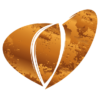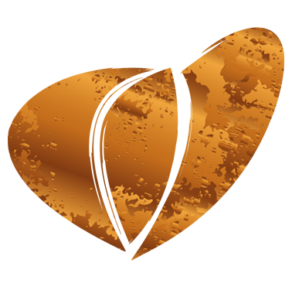WOMEN and the UNKNOWN: presented by Stacy Klein at Anger / Appetite / Ambition / ART — a Symposium on Women Innovators in the Arts: Montclair State University, March 28, 2018.

I would like to start from today and move backwards from where I am to how I got to this moment in time. For the past 7 months I have been immersed in the world of Leonora Carrington, a painter, sculptor, writer, and profound contributor to the art and magic of the twentieth century. She died five years ago in her nineties. I created the perormance Leonora and Alejandro, la Maga y el Maestro, inspired by her work, with my ensemble and particularly Jennifer Johnson, who played Leonora. It premiered last weekend at the Kasser Theater. I wrote in my program note how it came to be that the performance was based on Leonora. After the US election and the misogyny that led up to it, I decided I would never again create a piece of theatre without a female lead. On the other hand I did not want to abandon the Latin American Cycle I was creating based on Alejandro Jodorowsky’s writing and the experiences of my partner and co-artistic director Carlos Uriona in the Argentine military dictatorship. I sought out women artists of Latin America, and Leonora Carrington appeared. A British-born aristocrat, Carrington escaped from a Spanish asylum where she was incarcerated at the beginning of World War II and sought refuge in Mexico, where she remained for seventy years. What we didn’t know at the time was that Carrington and Jodorowsky knew each other, and had worked together. Carrington was a mentor and Jodorowsky her apprentice.
“After the US election and the misogyny that led up to it, I decided I would never again create a piece of theatre without a female lead.”
Serendipity (or perhaps we should call it magic) had a huge role in the process of creating this performance. We did not predict or even seek out that the story of Carrington’s life and work would intersect so deeply with so many, many women, nor that we could openly create a work of magic, mysticism, pain, beauty and very importantly, the Unknown. We did not realize that it would be so singular to create a work with a female, crazy (or maybe not?) artist in the lead, nor that almost all work on these subjects are about men (think- A Brilliant Mind, or any movie you know about artists, like Pollock, etc — and that so unlike many of these film worthy, brilliant male artists Leonora never raped, abused, or used violence as a methodology). It never struck us that having a woman lead a man and a man apprentice to a woman, as Leonora did to Alejandro, would be so unique.
Had I realized all these things, the magic and mystery probably would not have worked out as well. Or I would have been afraid to reveal them.

We dove deeply into Leonora’s writings about her time in the Asylum, and uncovered an artist who refused to capitulate herself to the torture she experienced in receiving regular injections of Cardiazol and being told to control herself. Rather than stop creating, a short time after she chronicled these experiences she transformed them into a magic realism story called The Hearing Trumpet. This depicted old wise women locked (or thrown by their families) into an asylum, who, rather than giving up, go in search of a mystical journey to the Arctic (the North). Finally, ten years later, she wrote an unabashedly mystical book called The Stone Door, delving into the Unknown with a courage that fully captured my life long search.
Having lived in Leonora’s world for these many months, I have learned that with each step I take in my art and my life, I must garner my own courage to survive, to speak (usually through art) to continue creating, to form creative (and loving) partnerships, and to dare to confront the Unknown and to share this with those who see my work and exchange with me.
Upon reflection, I am in awe that I never knew that courage was a daily process. I spent my artistic life, and indeed my adulthood, fighting to gain back the rights I was raised with by my dear parents who did not understand I might face limits as a woman. Thus began a lifetime dichotomy between a world of imaginative journey, wonder, mystical yearnings, freedom and art, juxtaposed with a strong reality of doubt, struggle, limits, and just plain fighting.
“Upon reflection, I am in awe that I never knew that courage was a daily process.”

During college I went to Poland and found (through the shattering of my collarbone during a training and subsequent need for the teacher to take me to the hospital), my mentor Rena Mirecka, founding member and lead actor of Grotowski’s theatre lab. One of the greatest actors of the twentieth century, Rena demonstrated, through the sacrifice of family and an ordinary life, the courage to take her body and soul to the utmost spiritual realm. For this practice in the Unknown, her reputation diminished, and to this day I am still asked when I name her, if I also worked with Grotowski! When I went to get my PhD at Tufts, after having created the first two women’s theater festivals in the world in 1979–80, with partner Susie Chancey, I found myself in a school with no female teachers, NO acting parts of interest for women, and no women playwrights or directors taught (I fought at my peril to teach Ntozake Shange). I decided to use my training in psycho spiritual realms, learned in Poland, to create a ritual performance called RITES, a modernization of the Bacchae set in a woman’s bathroom in London. An all woman performance in which I had the men in the audience sit upstairs as many versions of Pentheus, and the women downstairs, led to the founding of Double Edge. In the early days DE was a feminist company, but after experiences with the women’s community in Boston in which I was told that I should not deal with the irrational in regard to women nor present a performance about a Catholic priest raping a paritioner (that didn’t happen), I sought to abolish any labels for the ensemble. This opened a desire to understand my Kabbalistic roots in Eastern European Jewish mysticism, and Double Edge spent many years back and forth to five countries in Central Europe. Upon returning to the US, I was encouraged to believe that Kabbalah and mysticism were not acceptable forms of exploring Jewish culture. If art is anarchy, which it must be to say the unsayable, then it must also be free of the constraints of any kind of dogma, no matter which ‘side’ promulgates it. At that point I decided to move my ensemble (and small children) to Western Massachusetts to a former dairy farm where I could be free of being told who I was and how I should exhibit this knowledge. I wanted to work without having to conform or feel guilty or wonder how crazy I was.

Serendipity, or magic, took hold, and I and we landed in Ashfield, MA. We wanted to have a laboratory of work where we could be alone, and ended up with a community and conditions which demanded we join. From that year in 1994 until now DE has become a backbone of a community in one of the poorest counties in Massachusetts. We have created three cycles of work and many indoor- outdoor performance spectacles. The work has been based on our dialogue with nature, our dialogue with other artists like Chagall, and on a give and take with the Unknown. For many years I struggled with the paradox of my deep need to be accepted, by making narrative performances, like Quixote, and The Odyssey, and my even deeper need to create and paint my imaginative truth which had nothing to do with a plot. The Grand Parade was a perfect example of this dichotomy, with the plot of the twentieth century on the ground, depicting one war after another, and the possibility of another reality above created by women flying and loving. I came to understand that our American culture has been saturated with a need to control, not only nature, the food systems, agriculture, barter now existing only in the form of money and greed, but life, death and of course, art. We learned that it would take courage and real struggle to create a culture that accepted the Unknown, that sought the spirit, that was based in love, and that challenged people with questions, rather than giving answers.
“I came to understand that our American culture has been saturated with a need to control, not only nature, the food systems, agriculture, barter now existing only in the form of money and greed, but life, death and of course, art”
I believe this brings us full circle. We as a society have relinquished our capacity of imagination and creativity to the assembly line and to our smart phones.
In my career of forty or so years, I have been called iron lady by authoritarian producers shouting at me to listen to them as they tell me what to do in my performance, been described by American Theater magazine as a pale petite intense woman, and been told and written about repeatedly as someone who doesn’t smile. OR called a witch or a bitch. OR too intense to approach. These are only the minor insults. I wake up everyday wondering if today is the day I will descend again into craziness, be violated, or give up my soul for survival. Which woman have I encountered believes with confidence they can ask men for work, or ask for the same fees as their male counterparts? There is an institutional creation of inferiority in regard to women, but when I cannot sleep in the night, or wake in dread that someone won’t understand me, I cannot see the institution, but only my own fear. Then I force myself to go to work in the Unknown, I seek the courage of my passion, I live in the natural world, I walk in the snow, I plant the seeds of art on my theatre farm. The hurricanes are coming, we have made sure of that. The sick game of battle with control is being lost. I must continue the radical act of imagination. We all must be citizens of the imagination. We must feel, hear, smell, taste, sing, dance, paint our future. With courage.



